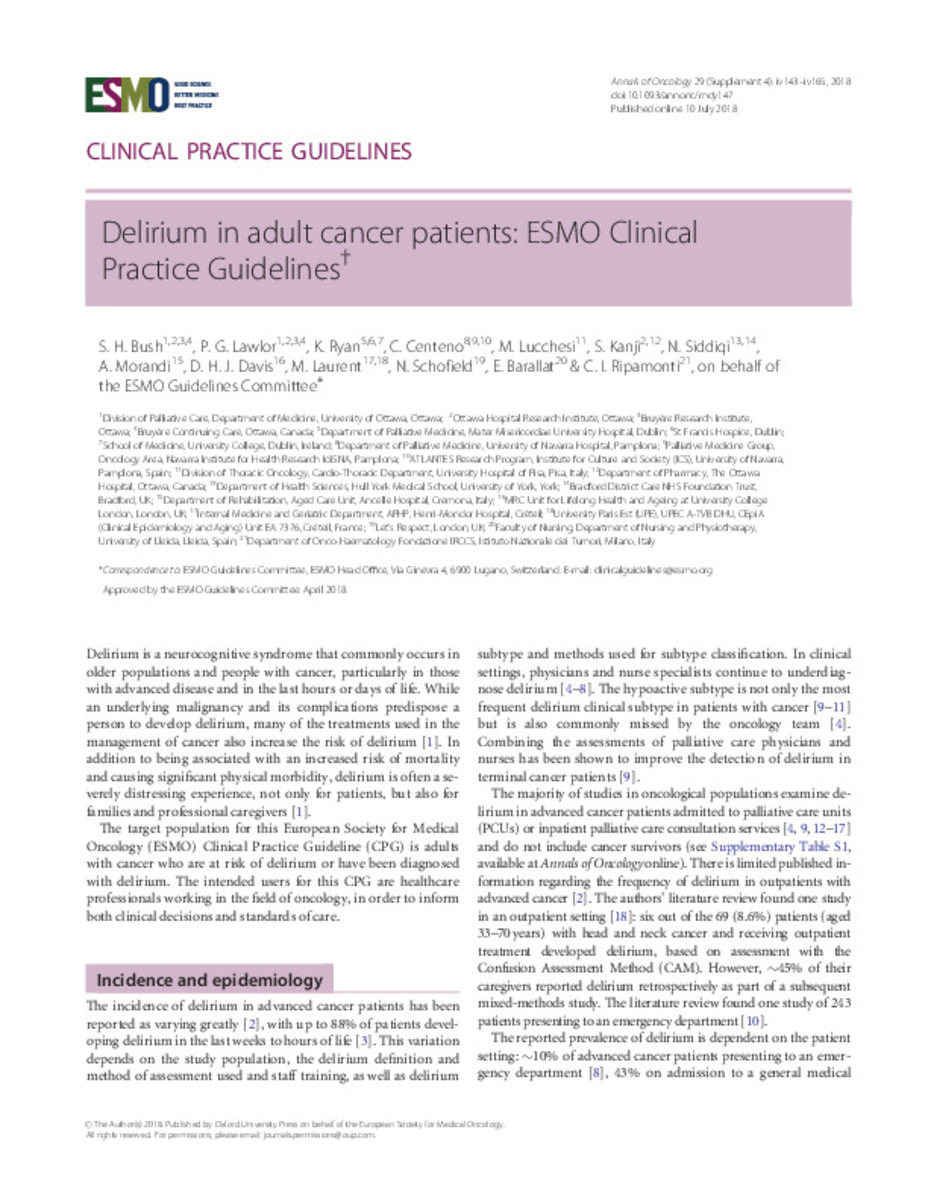Delirium in adult cancer patients: ESMO Clinical Practice Guidelines
Palabras clave :
Delirium
Neurocognitive syndrome
Advanced disease
Treatments
Fecha de publicación :
2018
Cita:
Bush, S.H. (S. H.); Lawlor, P.G. (P. G.); Ryan, K. (K.); et al. "Delirium in adult cancer patients: ESMO Clinical Practice Guidelines". Annals of Oncology. 29, 2018, 143 - 165
Aparece en las colecciones:
Estadísticas e impacto
0 citas en

0 citas en

Los ítems de Dadun están protegidos por copyright, con todos los derechos reservados, a menos que se indique lo contrario.











